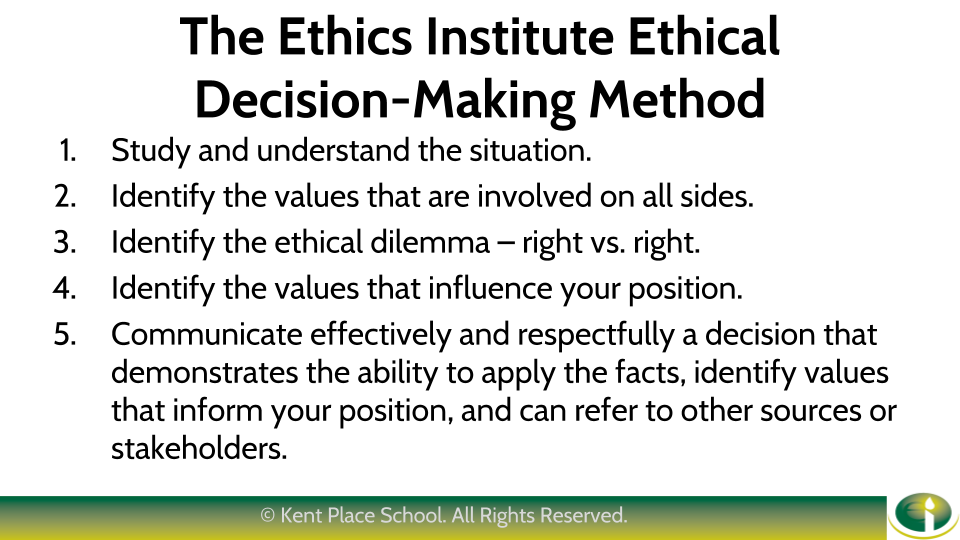Zeninjor Enwemeka, NPR; Solving The Tech Industry's Ethics Problem Could Start In The Classroom
"Ethics is something the world's largest tech companies are being forced
to reckon with. Facebook has been criticized for failing to quickly
remove toxic content, including the livestream of the New Zealand mosque shooting. YouTube had to disable comments on videos of minors after pedophiles flocked to its platform.
Some companies have hired ethicists to help them spot some of these
issues. But philosophy professor Abby Everett Jaques of the
Massachusetts Institute of Technology says that's not enough. It's
crucial for future engineers and computer scientists to understand the
pitfalls of tech, she says. So she created a class at MIT called Ethics of Technology."
My Bloomsbury book "Ethics, Information, and Technology" was published on Nov. 13, 2025. Purchases can be made via Amazon and this Bloomsbury webpage: https://www.bloomsbury.com/us/ethics-information-and-technology-9781440856662/
Thursday, July 25, 2019
What Students Gain From Learning Ethics in School; KQED, May 24, 2019
Linda Flanagan, KQED; What Students Gain From Learning Ethics in School
"Children at Kent Place are introduced to ethics in fifth grade, during what would otherwise be a health and wellness class. Rezach engages the students in simple case studies and invites them to consider the various points of view. She also acquaints them with the concept of right vs. right—the idea that ethical dilemmas often involve a contest between valid but conflicting values. “It’s really, really, really elementary,” she said.
In middle and upper school, the training is more structured and challenging. At the core of this education is a simple framework for ethical decision-making that Rezach underscores with all her classes, and which is captured on a poster board inside school. Paired with this framework is a collection of values that students are encouraged to study and explore. The values and framework for decision-making are the foundation of their ethics training."

"Children at Kent Place are introduced to ethics in fifth grade, during what would otherwise be a health and wellness class. Rezach engages the students in simple case studies and invites them to consider the various points of view. She also acquaints them with the concept of right vs. right—the idea that ethical dilemmas often involve a contest between valid but conflicting values. “It’s really, really, really elementary,” she said.
In middle and upper school, the training is more structured and challenging. At the core of this education is a simple framework for ethical decision-making that Rezach underscores with all her classes, and which is captured on a poster board inside school. Paired with this framework is a collection of values that students are encouraged to study and explore. The values and framework for decision-making are the foundation of their ethics training."

Daniel Callahan, 88, Dies; Bioethics Pioneer Weighed ‘Human Finitude’; The New York Times, July 23, 2019
Katharine Q. Seelye, The New York Times; Daniel
Callahan, 88, Dies; Bioethics Pioneer Weighed ‘Human Finitude’
“The scope
of his interests was impressively wide, as the Hastings Center said in an
appreciation of him, “beginning with Catholic thought and proceeding to the
morality of abortion, the nature of the doctor-patient relationship, the
promise and peril of new technologies, the scourge of high health care costs,
the goals of medicine, the medical and social challenges of aging, dilemmas
raised by decision-making near the end of life, and the meaning of death.”...
Among his
most important books was “Setting Limits: Medical Goals in an Aging Society”
(1987), which argued for rationing the health care dollars spent on older
Americans.”…
“He urged
his peers and the public to look beyond narrow issues in law and medicine to
broader questions of what it means to live a worthwhile life,” Dr. Appel said
by email.”…
While at
Harvard, Mr. Callahan became disillusioned with philosophy, finding it
irrelevant to the real world. At one point, he wandered over to the Harvard
Divinity School to see if theology might suit him better. As he wrote in his
memoir, “In Search of the Good: A Life in Bioethics” (2012), he concluded that
theologians asked interesting questions but did not work with useful
methodologies, and that philosophers had useful methodologies but asked
uninteresting questions.”
Subscribe to:
Comments (Atom)